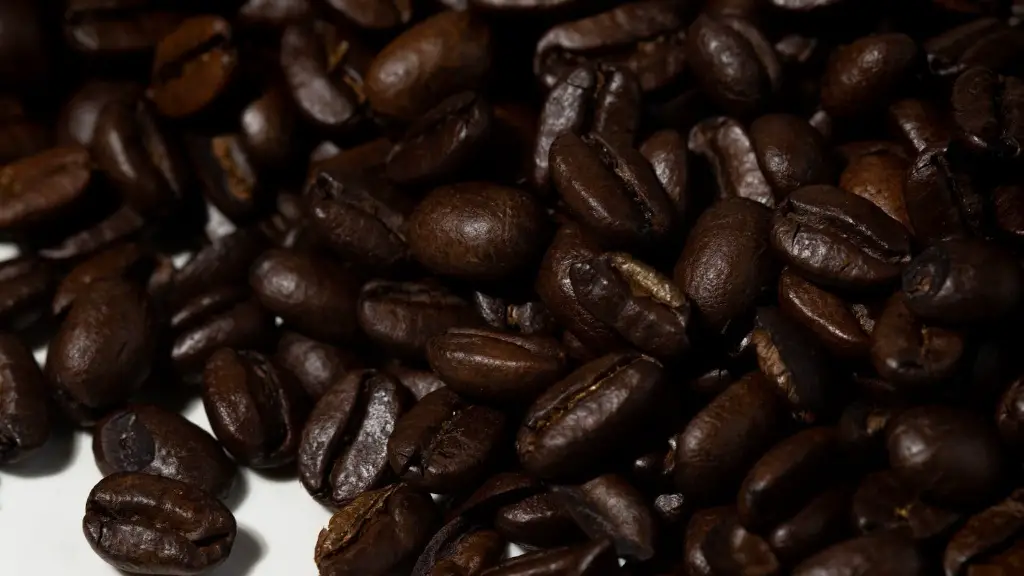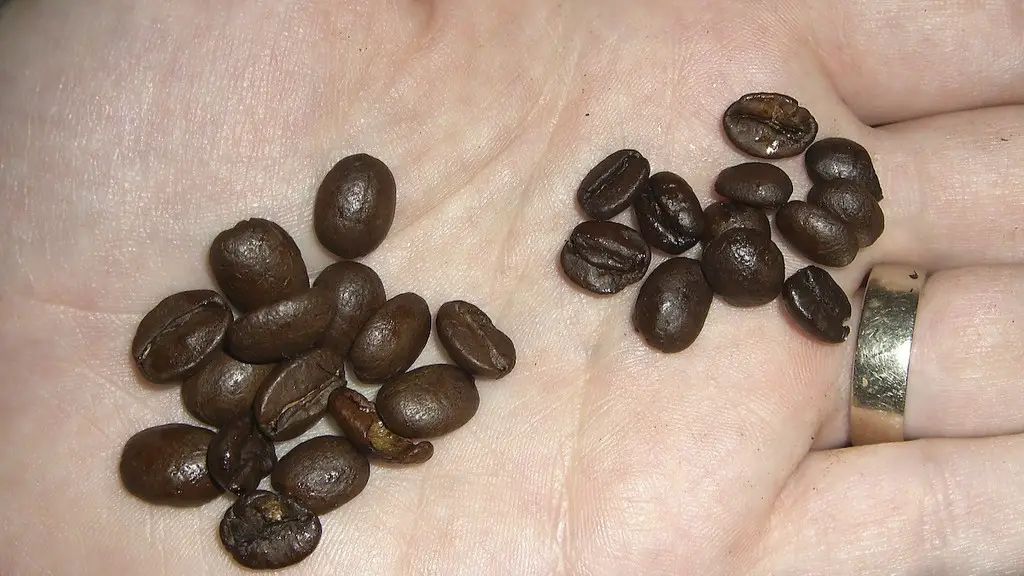Background on Coffee & Energy Drinks
Coffee and energy drinks have become part of many people’s daily routine for energy and focus. Coffee, an ancient brewed beverage, initially roasted and brewed in Ethiopia, is now found on every continent, prepared and consumed in countless forms and variations. Coffee is believed to contain stimulants such as caffeine, polyphenols, lignans and trigonelline, which aid in increasing alertness, helping improve physical and mental performance. On the other hand, energy drinks promise to perform the same tasks, typically through added ingredients, such as ginseng, taurine, caffeine and guarana.
Analysis of Positive Benefits of Coffee
Research suggests that coffee consumption on a regular basis has been discovered to have multiple health benefits. In studies on coffee consumption, it is indicated that coffee intake over the course of an individual’s lifetime was positively associated with a lower mortality rate. Additionally, coffee consumption can reduce the risk of various diseases, such as type 2 diabetes, Parkinson’s disease, and liver disease. Additionally, among those who drank coffee, the risk of stroke was lower than among those who drank the least amount of coffee.
Drinking coffee can also help with mental alertness, as coffee contains modest amounts of caffeine, which is a known stimulant. Caffeine can improve physical performance and cognitive functioning, such as memory, reasoning, alertness and problem-solving skills. However, because everyone’s reaction to caffeine differs, it is recommended that individuals should limit their intake of caffeine in order to benefit from its positive effect on their performance.
Analysis of Positive Benefits of Energy Drinks
Unlike coffee, energy drinks rely on artificial ingredients for energy. Energy drinks typically contain large doses of caffeine and other stimulants, such as taurine and guarana, to provide an energy boost. Research has found that energy drinks can help to increase physical endurance, attention and alertness. Additionally, according to a 2012 study, it was also found that energy drinks can help with memory and reaction time.
However, it is important to note that most energy drinks come with health risks. Energy drinks have up to three times the amount of caffeine than your average cup of coffee, which can lead to anxiety, elevated blood pressure, heart palpitations, and headaches, among other side effects. Therefore, it is recommended that individuals should limit their intake of energy drinks, or switch to healthier alternatives.
Nutritional Comparison of Coffee and Energy Drinks
When comparing coffee and energy drinks, it is important to consider their nutritional values in order to make an informed decision. On one hand, coffee is considered to be one of the most natural and healthiest sources of energy. Most types of coffee contain 0 grams of fat and 0 grams of sugar, which is healthier than energy drinks. Coffee does contain some calories, however. An 8-ounce cup of black coffee contains 4 calories.
On the other hand, energy drinks typically contain large amounts of calories, fat, and sugar. A single 16-ounce can of some energy drinks can contain up to 250 calories. Moreover, many energy drinks also contain large amounts of sugar, which can lead to adverse health effects if consumed in large amounts over a prolonged period of time.
Cost Analysis of Coffee and Energy Drinks
Another factor to consider when deciding between coffee and energy drinks is the cost. Coffee is typically one of the cheaper options for providing energy, as a cup of black coffee costs anywhere from $0.75 to $3.00, depending on where you buy it. On the other hand, energy drinks typically tend to be more expensive. A single 16-ounce can of energy drink can cost up to $3.00; even energy drinks that come in smaller cans can cost up to $2.00.
Preference of Coffee and Energy Drinks Consumers
A survey conducted by Harvard University found that 75 percent of respondents who drink coffee also drink energy drinks, while 95 percent of respondents who drink energy drinks also consume coffee. This suggests that many individuals prefer to consume both coffee and energy drinks, in order to obtain a balance of energy and health benefits.
Health Concerns of Coffee and Energy Drinks Consumers
It is important that individuals consider their health when deciding between coffee and energy drinks. For most people, the occasional cup of coffee or energy drink is fine, however, it is recommended that individuals should limit their intake of both, in order to avoid the associated side effects, such as headaches and elevated heart rate. Additionally, individuals should ensure that they monitor their caffeine intake, as consuming too much caffeine can lead to various health issues. Furthermore, it is important to consider the nutritional value of both coffee and energy drinks. Coffee is typically healthier than energy drinks, as it contains 0 grams of fat and 0 grams of sugar.
Cancer Risk from Mixing Coffee and Energy Drinks
Studies have found that mixing coffee with energy drinks can increase the risk of certain types of cancer. The reason for this is that energy drinks can contain large amounts of sugar and artificial ingredients, which can increase the risk of cancer when mixed with hot coffee. Additionally, some types of energy drinks are believed to contain carcinogens, and combining these with hot coffee can lead to an increased risk of cancer.
Energy Boosts from Coffee and Energy Drinks
Coffee and energy drinks can both provide an energy boost, although the effects differ. Coffee contains modest amounts of caffeine, which can help to enhance mental alertness, improve physical and cognitive performance, and increase physical endurance. On the other hand, energy drinks contain larger amounts of caffeine and other stimulants, such as ginseng, taurine and guarana, which can help to provide an instant energy boost.
Negative Effects of Coffee and Energy Drinks
It is important to consider the potential side effects associated with both coffee and energy drinks in order to make an informed decision. Many side effects are associated with coffee consumption, such as headaches, heart palpitations, anxiety, and insomnia. With energy drinks, it is important to consider that these beverages can contain large amounts of sugar and caffeine, which could lead to various side effects, such as headaches, nervousness, nausea, rapid breathing, sweating and insomnia.
Conclusion
When deciding between coffee and energy drinks, it is important to consider the various factors, such as the nutritional value, cost, and potential health risks. In most cases, an individual’s preference and lifestyle are ultimately the determining factors. Coffee is typically healthier than energy drinks, as it contains no fat and sugar, as well as some health benefits. On the other hand, energy drinks provide an instant energy boost, but can contain large amounts of sugar and other artificial ingredients, which can lead to potential health risks when consumed in large amounts.


